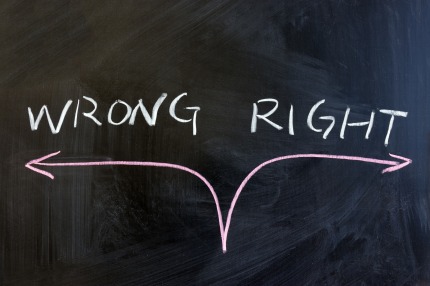I have always viewed ethics as behavior that tries to do the right thing. This understanding of ethics has been driven by truths I assumed to be generally understood by everyone. For example, you don’t need someone to tell you it’s wrong to hurt people or steal things that don’t belong to you … it is simply a matter of intuition. Right?
 Of course, ethical complexities occur when you try to define the “right thing.”
Of course, ethical complexities occur when you try to define the “right thing.”
If you had asked me to define ethical communication before taking COM 616: Communicating Mindfully, I would have suggested a simple answer based on promoting honesty and the avoidance of saying hurtful things. My ideas about ethical communication were focused on how people actively treat one another. That’s why I was most intrigued by the theory of dialogic communication ethics. The theory reframes the ethical debate into one that demands openness and attentiveness as a listener. According to this theory, the most ethical form of communication is to be mindful of other viewpoints so they can be fully understood and absorbed. Only through this openness can we have a “morally responsible identity when we communicate” (Fairhurst, 2011, p. 137).
Above all, I have learned that many ethical beliefs are open to interpretation–or at the very least, capable of being clarified–through ethical communication. Rather than assume I have an ethical superiority over another person, I must be open to his or her views so I can compare that information to my own beliefs, and then advance my view of the situation. Moving forward, I will try to raise the consciousness of my ethical behavior beyond acts and active communication, and expand it to include the more difficult trait of being a good listener.
I look forward to your comments. Seriously … I’m all ears folks.
Project Example
Group Therapy with Nurse Ratched A Case Study of Dialogic Communication Ethic
Shine a Light On It: Exploring Ethical Communication
References
Fairhurst, G.T. (2011). The power of framing: Creating the language of leadership. San Francisco, California: Jossey-Bass.
